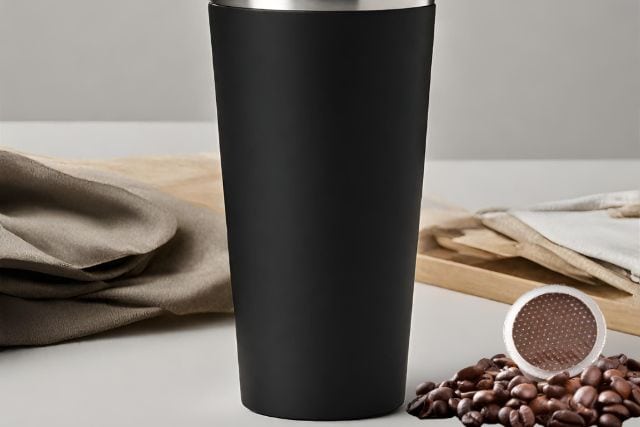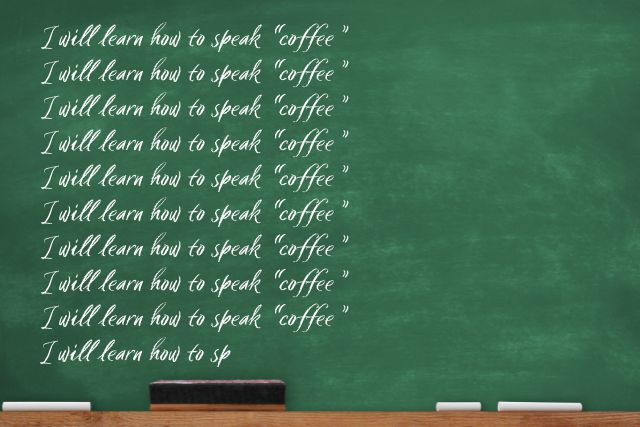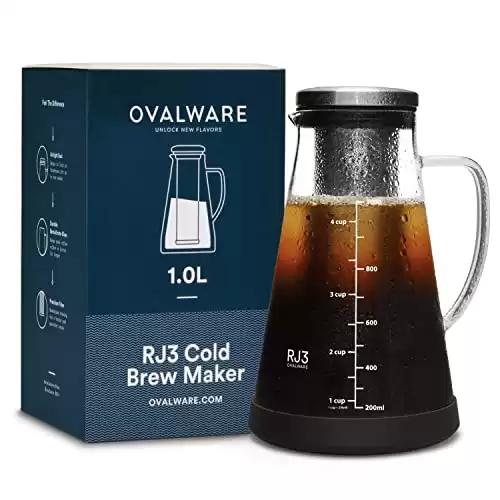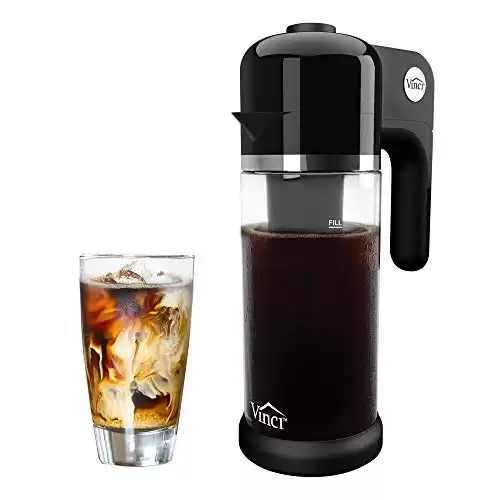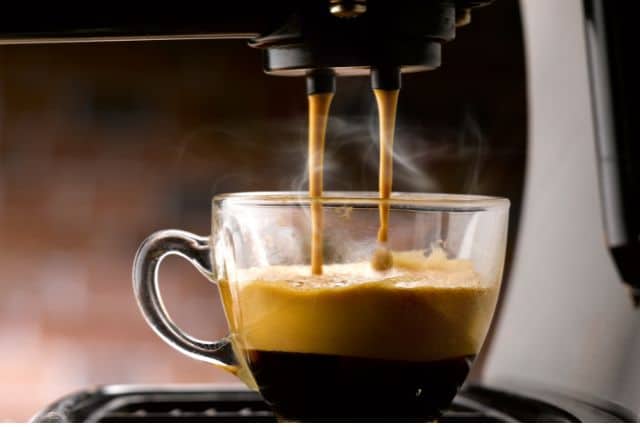Does Cold Brew Go Bad? Examining The Most Common Misconceptions
This post contains affiliate links, which means we receive a small commission on qualifying purchases. This does not impact your cost in any way. See details here.
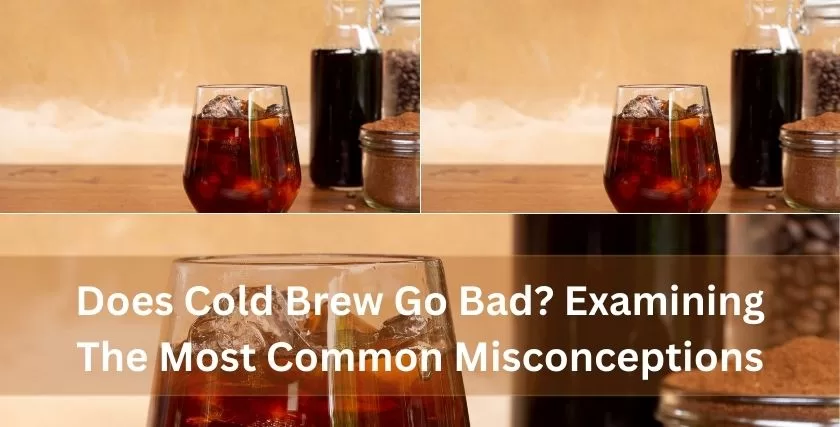
If you’re a fan of cold brew coffee, you may have some questions about its shelf life and how to properly store it.
We will explore the differences between cold brew and iced coffee, debunk common misconceptions about cold brew, and answer the burning question: does cold brew go bad?
We will also discuss how to store cold brew properly, whether you can reheat it, and what to do if your cold brew has expired. Let’s get started!
What Is Cold Brew?
Cold Brew is a method of brewing coffee that involves steeping coarsely ground coffee beans in cold water for an extended period, typically 12-24 hours.
This slow extraction process results in a smooth and less acidic coffee concentrate, perfect for those who prefer a milder flavor profile. The coarsely ground beans prevent over-extraction, leading to a balanced and rich brew.
Once the steeping time is complete, the cold brew is usually filtered to remove the grounds, producing a clean and vibrant coffee that can be enjoyed over ice or diluted with water or milk according to preference.
Cold Brew is gaining popularity for its convenience and versatility, making it a refreshing choice for coffee lovers seeking a different brewing experience.
READ: How To Make Cold-Brew Concentrate: Everything You Need to Know
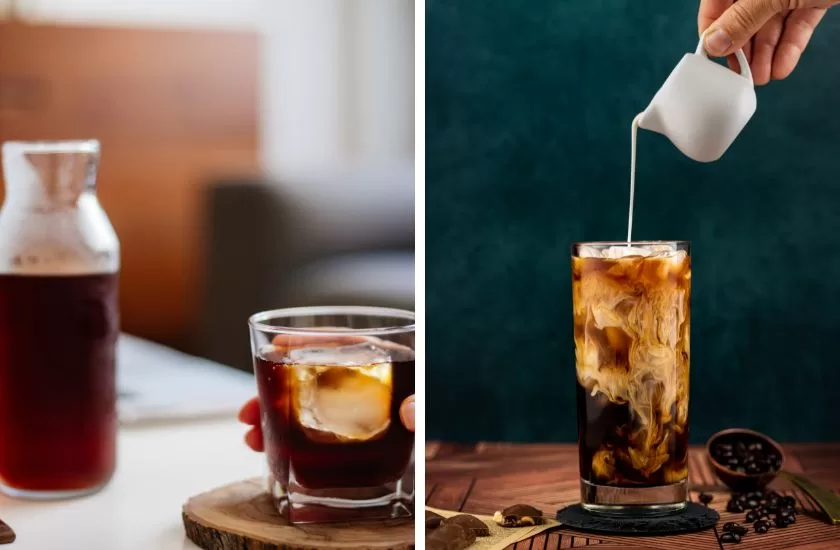
How Is Cold Brew Different from Iced Coffee?
Cold Brew differs from Iced Coffee in the brewing process; Cold Brew involves a long steeping time in cold water, while Iced Coffee is typically brewed hot and then chilled over ice.
One of the key distinctions between Cold Brew and Iced Coffee lies in the brewing temperature.
With Cold Brew, the low temperature of the water affects the extraction process, resulting in a smooth, less acidic flavor profile, while Iced Coffee is brewed at a high temperature which can lead to a more pronounced acidity and bitterness.
The cold water used in Cold Brew does not extract the compounds that hot water does, providing a unique taste experience.
Common Misconceptions About Cold Brew
There are several misconceptions surrounding Cold Brew coffee, including beliefs about its caffeine content, flavor profile, and shelf life.
One of the common myths about Cold Brew coffee is that it has higher caffeine content than regular coffee. In reality, the steeping process used in making Cold Brew actually results in a smoother, less acidic brew, which can often lead to lower caffeine levels. This makes it a suitable choice for those looking to enjoy coffee without the intense caffeine buzz.
Another common misconception is that Cold Brew coffee has a significantly different flavor profile compared to hot brewed coffee. While Cold Brew does have its own unique taste, it’s not necessarily stronger or weaker than traditional coffee; it simply offers a different experience, with its smooth and subtly sweet flavor.
There’s a myth that Cold Brew coffee doesn’t last as long as hot brewed coffee. Contrary to this belief, Cold Brew can actually stay fresh for a considerable amount of time if stored properly in a sealed container in the refrigerator. Its concentrated nature allows it to maintain its flavor and quality for several days, making it a convenient option for those who enjoy having coffee readily available.
Cold Brew is Just Chilled Coffee
A big misconception is that Cold Brew is simply coffee that has been chilled, but in reality, Cold Brew involves a distinct brewing process that results in a smoother, less acidic flavor profile.
Unlike traditional hot brewing methods, Cold Brew is made by steeping coarsely ground coffee beans in cold water for an extended period, typically 12-24 hours. This slow extraction process results in a more concentrated coffee concentrate, which is then diluted with water or milk before serving.
The extended steeping time of Cold Brew extracts fewer bitter compounds and acids from the coffee beans, leading to a milder, sweeter flavor profile. This unique method also produces a less acidic beverage, making it a popular choice for those who find regular hot brewed coffee too harsh on their stomach.
Cold Brew is Stronger than Regular Coffee
One we hear all of the time is that Cold Brew is inherently stronger than regular coffee due to its brewing process, but the strength of coffee is determined by factors such as bean roast and brewing ratio rather than the brewing method.
While Cold Brew does have a reputation for being bold and smooth, its strength is not solely a result of the long steeping process it undergoes. The bean roast plays a crucial role in determining the strength and flavor profile of the coffee. Lighter roasts tend to have more caffeine content and a brighter, more acidic taste, while darker roasts offer a richer, bolder flavor with less caffeine.
The brewing ratio is equally important; a higher ratio of coffee grounds to water will result in a stronger brew, regardless of the brewing method used. So, it’s essential to consider these elements in tandem to achieve your preferred coffee strength.
Cold Brew Doesn’t Expire
Some believe that Cold Brew does not expire due to its brewing process and storage method, but like any brewed coffee, Cold Brew also has a limited shelf life before its quality deteriorates.
Contrary to popular belief however, Cold Brew may last longer than traditional hot brewed coffee due to its lower acidity levels and higher caffeine content.
It is important to note that Cold Brew does have a shelf life. Proper storage plays a crucial role in maintaining its freshness and flavor. Storing Cold Brew in an airtight container in the refrigerator can help extend its shelf life up to two weeks. When refrigerated, we don’t worry about spoilage, but it really does taste better if consumed within two weeks.
Factors like exposure to air, light, and temperature fluctuations can accelerate the degradation process of Cold Brew. So, while it may have a longer shelf life compared to hot brewed coffee, it is still essential to consume Cold Brew within a reasonable timeframe to enjoy its optimal taste and quality.
Confession: We frequently consume Cold Brew that has been in the fridge for as long as a month.
Does Cold Brew Go Bad?
Cold Brew can go bad if not stored properly (refrigerated or frozen) or if left for an extended period beyond its recommended shelf life, leading to changes in flavor, aroma, and potentially harmful bacterial growth.
Improper storage can accelerate the bacterial growth process, potentially turning that refreshing Cold Brew into a breeding ground for harmful microorganisms. Prolonged exposure to air or light can also speed up the deterioration of your beloved beverage.
The telltale signs of spoiled Cold Brew often include a sour or rancid taste, cloudy appearance, and off-putting smells.
Consuming spoiled Cold Brew could pose health risks, such as upset stomach, food poisoning, or other gastrointestinal issues, making it crucial to handle and store this delightful drink with care.
Bottom line: If you are unsure, use your eyes, nose and taste buds.
Shelf Life of Cold Brew
The shelf life of Cold Brew varies depending on factors like brewing method, storage temperature, and the presence of preservatives, with most Cold Brews best consumed within 7-10 days of preparation. Aim for no more than a week for the best possible flavor.
In terms of the brewing method, the immersion technique typically yields a longer-lasting Cold Brew compared to the drip method due to the fuller extraction of flavors that act as natural preservatives. Storing Cold Brew in an airtight container in the refrigerator helps maintain its freshness by slowing down oxidation and microbial growth.
While some commercially available Cold Brews may contain preservatives to extend their shelf life, it’s advisable to opt for preservative-free options if you prefer a more natural taste. These preservatives can alter the flavor profile and quality of the Cold Brew over time, potentially shortening its optimal consumption window.
Signs of Spoiled Cold Brew
Signs of spoiled Cold Brew include a sour or rancid smell, unusual cloudiness, off-putting flavors, and the presence of mold or sediment, indicating that the coffee is no longer safe for consumption.
It’s important to be vigilant about these indicators as consuming spoiled Cold Brew can result in unpleasant experiences and potential health risks. If you notice any of these signs, it’s highly recommended to discard the Cold Brew immediately to prevent any adverse effects. Off-putting flavors can be a clear sign that the coffee has gone bad, and any presence of mold or sediment should not be ignored. Ensuring the freshness and safety of your Cold Brew is crucial for enjoying a satisfying and safe coffee experience.
How to Store Cold Brew Properly?
Proper storage of Cold Brew involves refrigerating the coffee in an airtight container to maintain freshness and prevent flavor degradation, ensuring that it is consumed within the recommended time frame.
This method helps retain the smoothness and unique flavor profile of Cold Brew, as exposure to air can lead to oxidation and loss of those delicate notes. By storing it in an airtight container, you create a barrier that protects the coffee from external elements. Remember, freshness is key when it comes to enjoying Cold Brew at its best.
Just because you can (properly) store cold brew for a couple of weeks or more, doesn’t mean you should. Cold Brew is generally at it’s peak within 3-4 days of preparation when it comes to optimal taste. After this period, the coffee may start to lose its freshness and vibrant characteristics. By promptly consuming the Cold Brew, you ensure that each sip delivers the delightful cold-brewed experience you desire.
Refrigeration
Refrigeration is the most effective way to store Cold Brew, as it helps inhibit bacterial growth, slows down flavor changes, and extends the coffee’s shelf life compared to leaving it at room temperature.
By keeping Cold Brew in the refrigerator, you are creating an environment that discourages harmful bacteria from multiplying, thus ensuring the safety of your beverage. The cold temperature also helps in maintaining the freshness and complex flavors of the coffee, allowing you to enjoy a consistent and rich taste with every sip. Refrigeration plays a crucial role in preserving the delicate compounds present in Cold Brew, preventing them from breaking down quickly, which can occur more rapidly at room temperature.
Freezing
We typically don’t do it, but freezing Cold Brew is an option to prolong its shelf life, it may alter the coffee’s flavor and texture upon thawing, making it a less preferable storage method compared to refrigeration.
If you choose to freeze your Cold Brew, be prepared for potential changes in its taste and consistency once it is thawed. Cold Brew’s complex flavor profile and smooth texture may not hold up well to the freezing and thawing process, resulting in a less satisfying coffee experience.
Refrigeration, on the other hand, is the recommended method for storing Cold Brew long-term. By keeping it chilled in the refrigerator, you can maintain the coffee’s original flavor and texture more effectively, ensuring a consistently enjoyable drinking experience.
Can You Reheat Cold Brew?
Reheating Cold Brew is not recommended as it can alter the coffee’s flavor profile and result in a less enjoyable drinking experience, as Cold Brew is intended to be consumed cold or over ice.
When you apply heat to Cold Brew coffee, you risk changing the delicate balance of flavors that make it unique. The cold extraction process used to make Cold Brew results in a smooth, less acidic drink that is perfect for sipping ice-cold. Heating it can degrade these flavor nuances, leading to a less satisfying taste.
To fully appreciate the nuanced flavor profile and refreshing nature of Cold Brew, it’s best to consume it as intended – chilled. So, resist the temptation to reheat your Cold Brew for a reinvigorated experience and savor its goodness at a cooler temperature.
How to Tell if Your Cold Brew has Gone Bad?
You can tell if Cold Brew has gone bad by checking for signs of spoilage such as off smells, unusual cloudiness, mold growth, or a sharp change in taste, indicating that the coffee should be discarded.
Off smells can be one of the most immediate indicators that something may be amiss with your Cold Brew. This could range from a musty or sour scent to a slightly rancid aroma, signifying potential spoilage. Observing any unusual cloudiness in your Cold Brew could suggest the presence of mold or bacterial growth, making it unsafe for consumption. Taste is another crucial cue – if your Cold Brew suddenly tastes overly bitter, sour, or has an off-putting flavor, it’s time to bid farewell to that batch for both health and enjoyment reasons.
What to Do with Expired Cold Brew?
If your Cold Brew has expired or gone bad, it is best to dispose of it responsibly by pouring it down the drain and cleaning any containers or equipment used for storage to prevent contamination.
Responsible disposal of expired beverages is crucial not only for your health but also for the environment. Pouring it down the drain ensures it doesn’t end up in landfills where it can further contaminate the soil and water sources.
After disposing of the Cold Brew, make sure to thoroughly wash the containers and tools with soap and hot water to eliminate any remnants that may promote bacterial growth. By practicing good cleanliness in handling expired products, you contribute to a safer and healthier environment for all.
Conclusion
Understanding the myths and facts about Cold Brew is essential for enjoying this refreshing beverage while ensuring its quality and safety through proper storage and handling.
One common misconception about Cold Brew is that it has higher caffeine content than regular coffee, but the truth is the brewing process actually results in a smoother, less acidic drink with a similar caffeine level.
Proper storage of Cold Brew is crucial to maintain its flavor and quality. It should be kept refrigerated and consumed within a few days of brewing to prevent the growth of harmful bacteria.
When disposing of Cold Brew, it’s important to be environmentally responsible. Avoid pouring it down the drain as it can contaminate water sources; instead, consider composting it or using it as a natural fertilizer.

Frequently Asked Questions
Does Cold Brew Go Bad?
No, cold brew does not go bad like other types of coffee. It can last up to two weeks in the fridge without losing its flavor or quality.
Is it safe to drink cold brew past two weeks?
While cold brew may still be safe to drink after two weeks (as long as you use your eyes, nose and taste buds to guide you), its taste and quality may start to deteriorate. It is best to consume cold brew within a few days to a week for absolute peak flavor.
Does refrigerating cold brew affect its taste?
No, refrigerating cold brew does not affect its taste. In fact, it is recommended to store cold brew in the fridge to maintain its freshness and flavor.
Can I store cold brew at room temperature?
While you can store cold brew at room temperature, it is not recommended as it can cause the coffee to spoil faster. Storing it in the fridge is the best way to preserve its quality.
Does cold brew have a higher caffeine content than regular coffee?
No, cold brew does not have a higher caffeine content than regular coffee. In fact, the brewing process of cold brew typically results in a lower caffeine content.
Can I freeze cold brew for later use?
Yes, you can freeze cold brew for later use. However, be sure to use an airtight container and thaw it in the fridge before consuming for best results.
